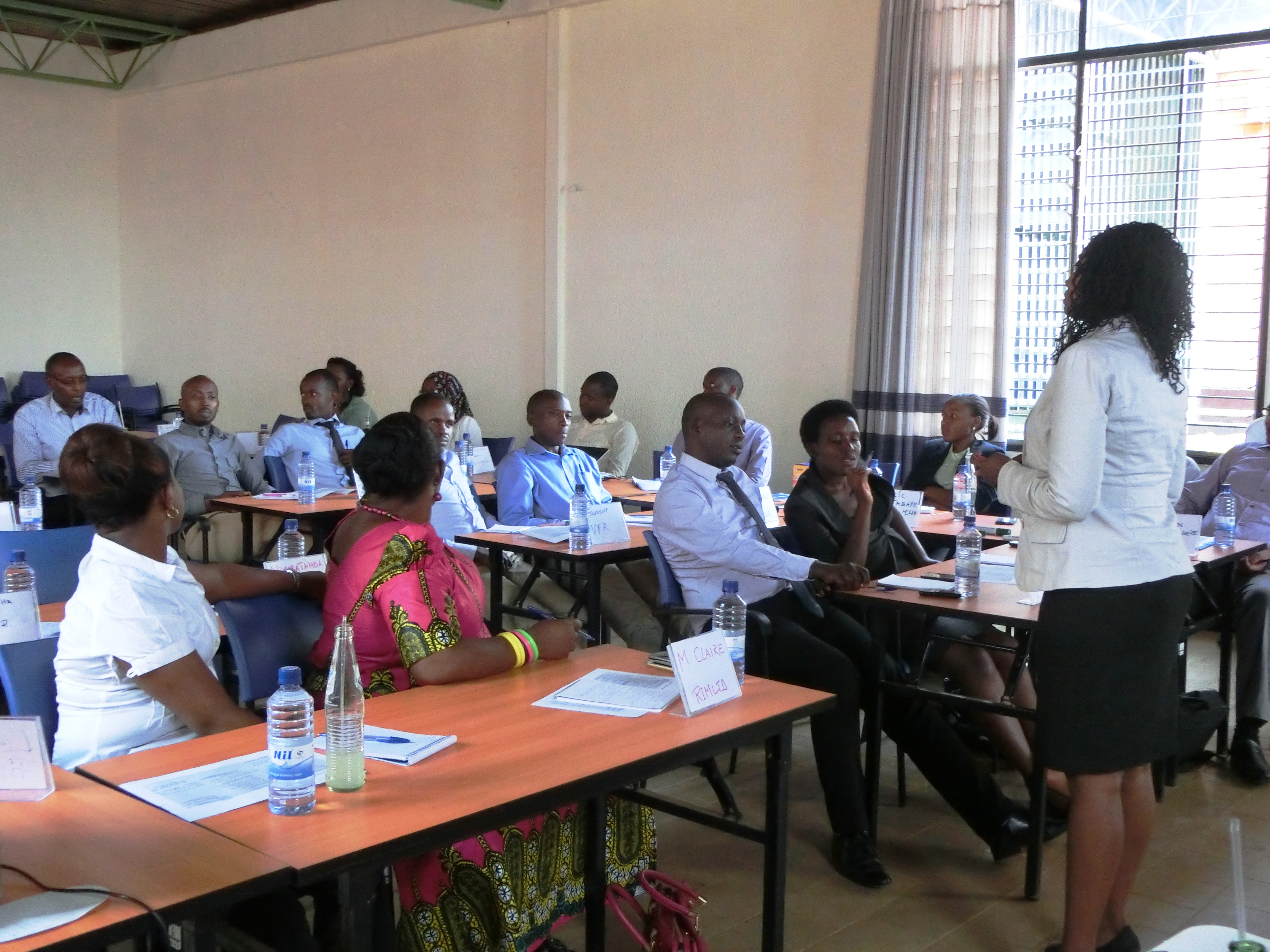In order to foster their efforts in the professionalisation of the Rwandan microfinance sector
and to enhance the quality of human resources available to the sector, the Association of
Microfinance Institutions in Rwanda (AMIR) and the Rwanda Institute of Cooperatives,
Entrepreneurship and Microfinance (RICEM) in partnership with the Savings Banks
Foundation for international Cooperation (SBFIC), are establishing a pilot project for a Dual
Apprenticeship System within the Rwandan Microfinance Sector.
Fostering skills development and capacity development in the private sector as well as
developing core and technical skills for Rwanda’s youth to be leveraged in the labour market
feature prominently among the numerous efforts of the Government of Rwanda (GoR) in
transforming the country into a knowledge-based middle-income country, thus achieving its
Vision 2020. It is recognised as being a crucial prerequisite that Rwanda satisfy the growing
demand for skilled labour by promoting and providing quality lifelong learning
opportunities to its people.
This growing demand for skilled labour especially within junior members of staff in the
Rwandan Microfinance Sector constitutes one of the key reasons for the implementation of
a pilot capacity development project spearheaded by AMIR, RICEM and SBFIC, called the
Dual Apprenticeship System. This capacity development intervention explicitly targets new
recruits within the sector (as well as junior members of staff) and aims at increasing their
employability and skills level on the one hand as well as their employing institution’s
performance consequently on the other hand. AMIR, RICEM and SBFIC, partnering with
further crucial stakeholders of the Rwandan public and private sector, are launching the
pilot project for the profile of ‘Microfinance Specialist’.
The Dual System pilot will be implemented in two phases and is conducted in collaboration
with a specific number of pilot microfinance institutions (MFIs) and savings and credit
cooperatives (SACCOs) as crucial actors within Rwanda’s financial sector.
Each pilot institution will select one apprentice per pilot phase to benefit from the
combination of theoretical skills acquisition at a training academy with on-the-job learning
within the MFIs, which is the pivotal qualificator inherent to the Dual System. The
Microfinance Specialist curriculum, which is currently being adjusted to the Rwandan
context, serves as the foundation for the rotational scheme of theoretical and on-the-job
training that the selected apprentices will be undergoing for the pilot’s duration of 10
months.
Pilot trainings will be offered after the completion of curriculum adjustment in 2016/ 2017.
Subject to the results of a final assessment of the pilot phase, regular trainings could be
rolled out within the Rwandan microfinance sector as a whole starting from the beginning of
2018.

